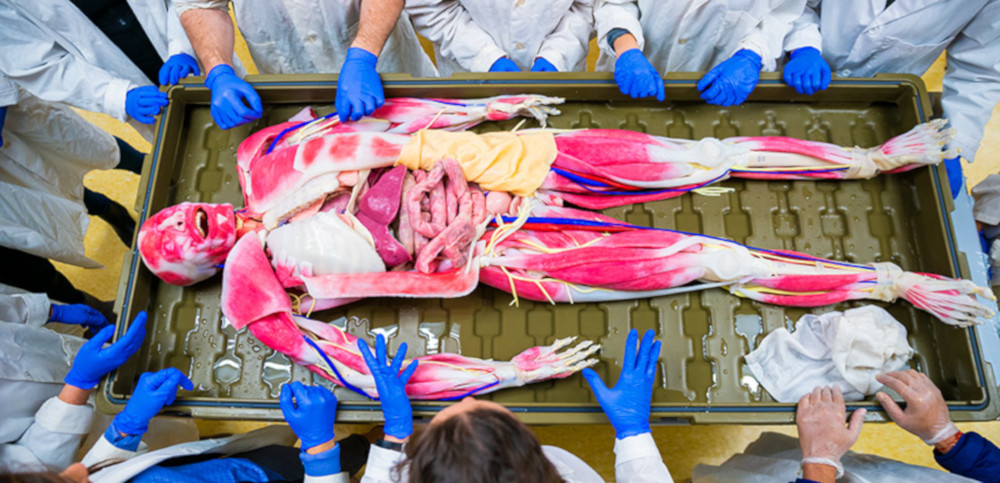Wilfrid Laurier University recently welcomed a unique, new pair of bodies to its Department of Kinesiology and Physical Education departments.

The bodies, which are teaching aids rather than teachers, are hyper-realistic synthetic cadavers, and are the first of their kind in Canada.
Sara and Rita, as they were named, come complete with every bone, joint, muscle, organ and tendon found on the human body.
“With these, it’s a much better resemblance of a cadaver,” said Diane Gregory, an associate professor at the university, who teaches anatomy. “I’ve done anatomy with cadavers so I feel like I can make that statement.
“You can feel the muscles. You can sort of push muscles to the side to see what is underneath. That’s a really amazing, tactile component of these that our other resources that we have had up until now don’t provide.”
Gregory said Sara and Rita will be helpful because they show the interconnection between varying parts of the human body that you would not get with a model of a shoulder or a stomach.
“You don’t get an appreciation of how they connect with other models which are a part of the portion of the body,” she said.

Get breaking National news
The school will also use Sara and Rita in outreach programs for high school students who might be interested in science.
They will also be on display at an open house on Saturday for prospective Laurier students.
“Students will be able to come and tour the anatomy lab and see these synthetic cadavers so they are aware of the resources that would be available to them if they were to come to Laurier,” Gregory said.
The cost of the cadavers, which were developed by a Florida-based company called SynDaver, start at US$70,000.
READ MORE: E-scooter share pilot program underway in Waterloo, first of its kind in Canada
Gregory said that while they are pricey, it would be a lot more expensive for the school to put together a lab to study cadavers.
In addition, they are fairly easy to maintain and Gregory said that they should last a long time if properly maintained. Plus, they are much safer than actual cadavers.
“They are made of plant-based materials, so completely safe, and you don’t need any kind of specialized chemicals or air exchange in the lab,” she said.
If you haven’t guessed, Sara and Rita, are both female cadavers.
Gregory said the school may opt to buy them a male version down the road, but purchased the ladies “because female reproductive organs are a bit more complex and located on the inside, it’s a bit more (practical).”
SynDaver randomly selected the names before they were shipped north of the border.
“The final assembly team picks names alphabetically depending on whim,” James Judge, a spokesperson for SynDaver, told Global News. “Recently, they have been using Game of Thrones as inspiration, but that changes from time to time.”
Gregory said staff at the university may provide students with an opportunity to re-name then in the future, but a final decision is not set in stone.









Comments